30 May Create Shadow Puppetry & Song Magic with West of Roan
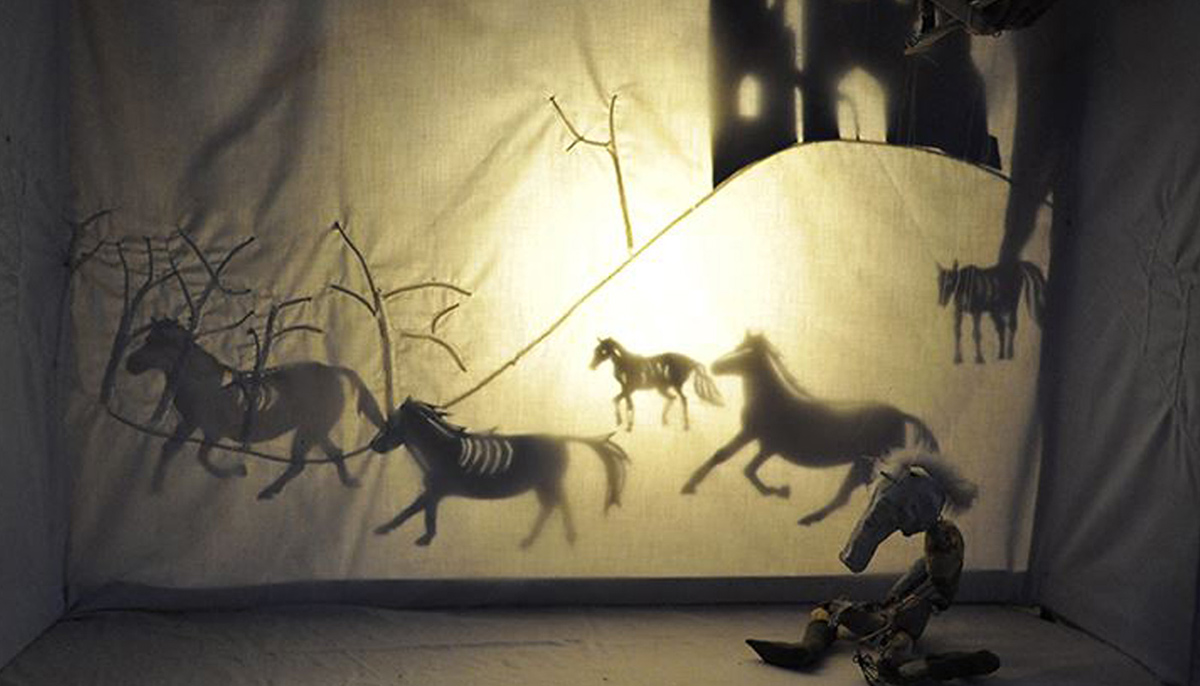
Shadow Puppetry Still from Tam Lin
Don’t miss an incredible opportunity to take a weeklong class with West of Roan (Channing Showalter & Annie Schermer). Known for creating performances using the storytelling methods of song and puppetry, this renowned duo will be teaching Puppetry and Song on October 9–14, 2023. We talked to Channing and Annie about their work and creative process. Enjoy our interview!
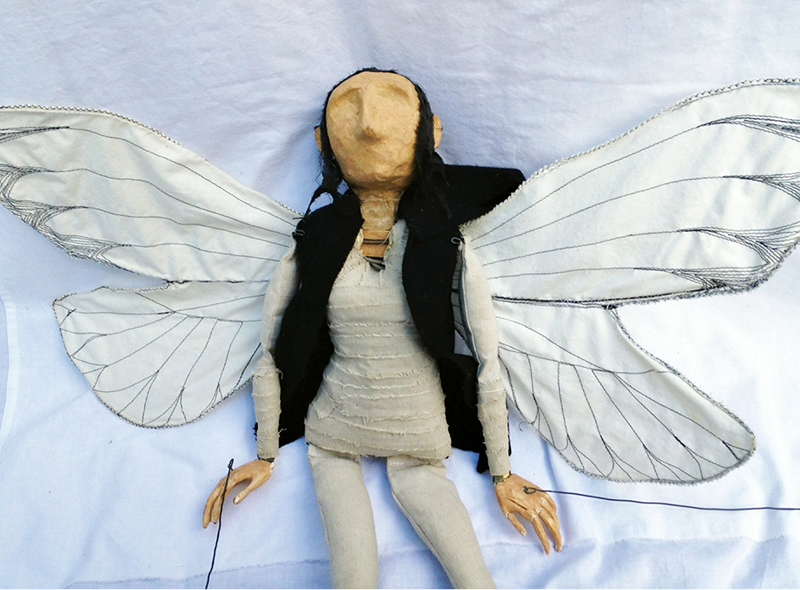
The “Girl with Wings” from Under the Hills
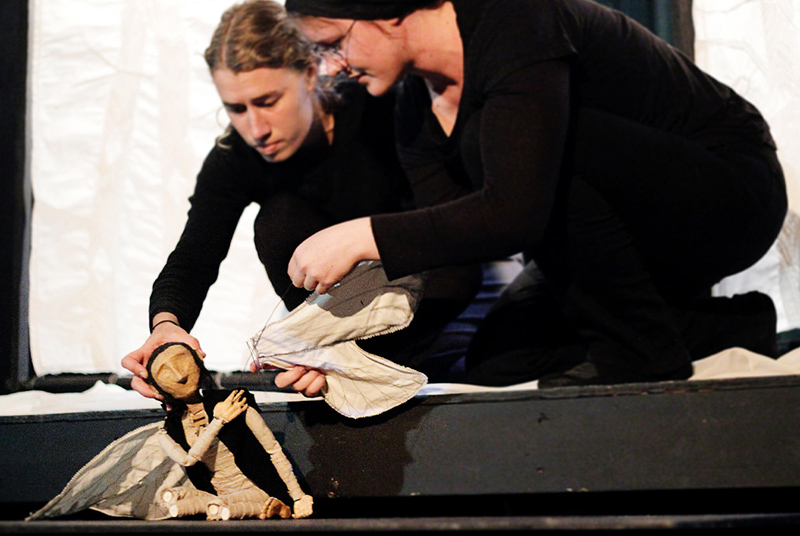
A still from a production of Under the Hills
JCCFS: Your upcoming shadow puppetry class is a very special opportunity stories and histories through art, song, and storytelling. Why did you choose shadow puppetry and song as your medium for storytelling?
West of Roan: We had been singing together for years when we started making puppet shows. When we first began adding shadow puppetry to our work, it was a little like our heads and hearts were overflowing with excitement; the medium has so many possibilities. Because the stories we are drawn to often have elements of life and death, underworld, or “shadow world,” it also has felt very fitting to work with light and shadow with such direct intimacy.
JCCFS: Why has shadow puppetry been a popular way of storytelling throughout time and cultures?
W of R: Shadows have been with us as long as the sun has been shining. Human emotion is easily moved by awe and wonder in the firelight cast on a wall or lacy leaf shadows in the forest. Shadow puppetry brings us back in touch with our emotional palette as humans, and in a simple way, this is satisfying to experience.
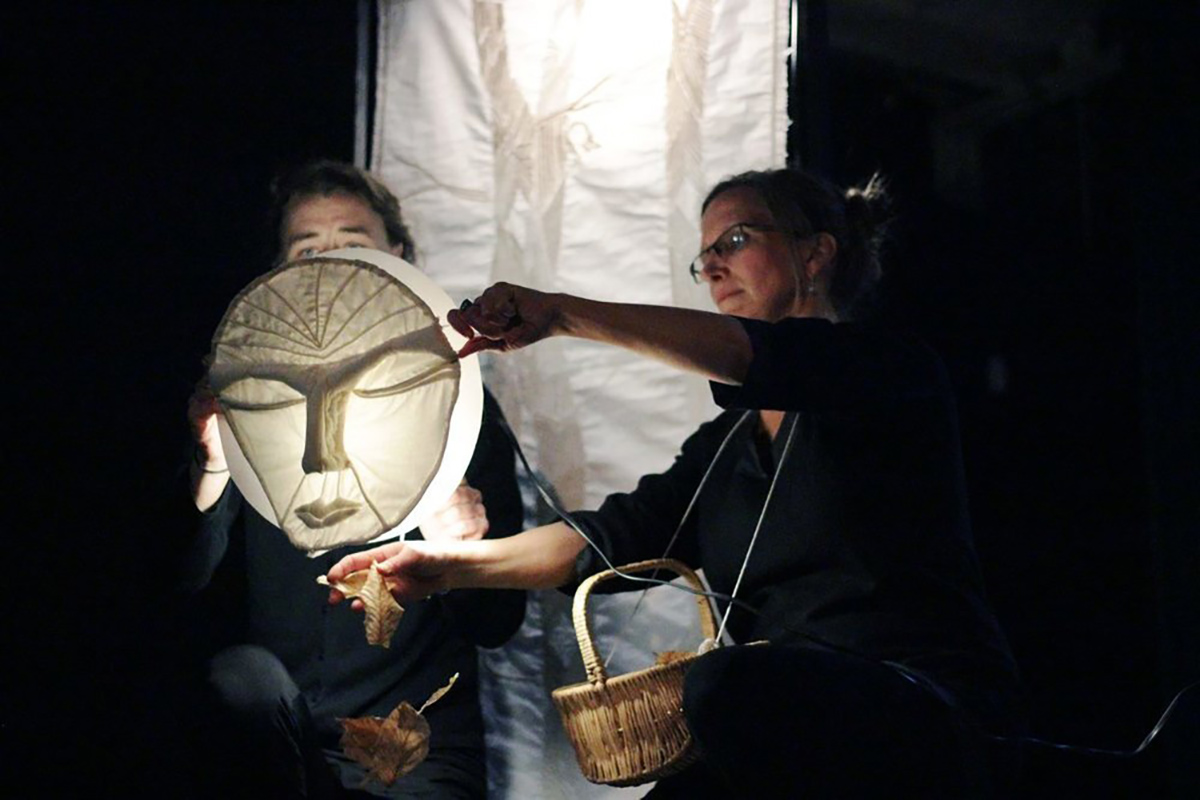
Moon from Under the Hills
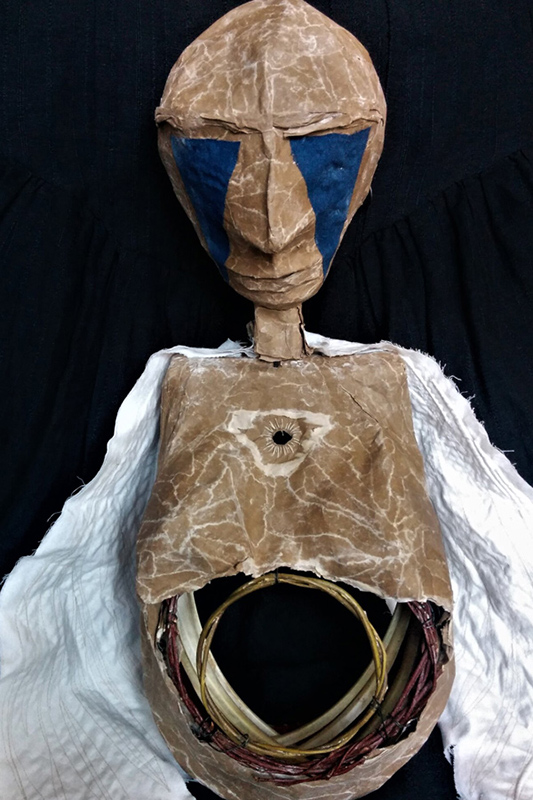
The Beren
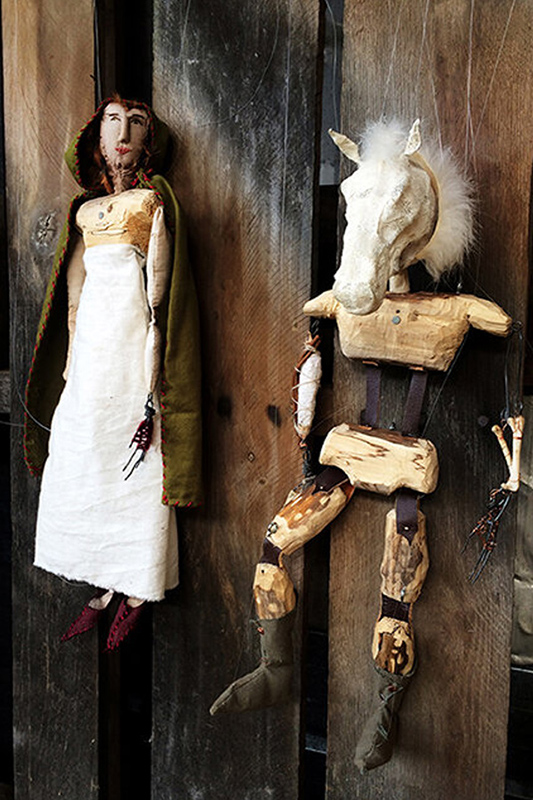
Tam Lin & Margaret Puppets
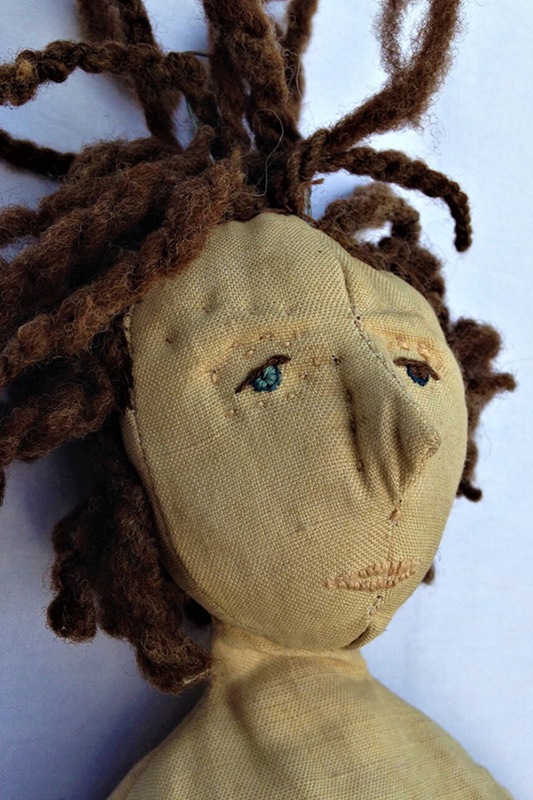
“Doll Boy” face from Sealskin
JCCFS: What are some of the benefits and positive experiences you’ve had working as a collaborative duo?
W of R: Our friendship is really at the heart of the work we do. Collaborating has allowed us to uplift and support each other in ways that are harder to do just for yourself, and we’ve each learned a lot from this process. When we are making a new show together we enter a place of collective imagination.
Ideas are so different when they are being formed in this collective place. They feel less like they came from our minds, and more like they came from the center of our lives.
Also, every close relationship has its joys and challenges. Working together through all the realness and difficulty of life has informed the content of what we make so much. There is deep trust that is built through time and going into the fires together.
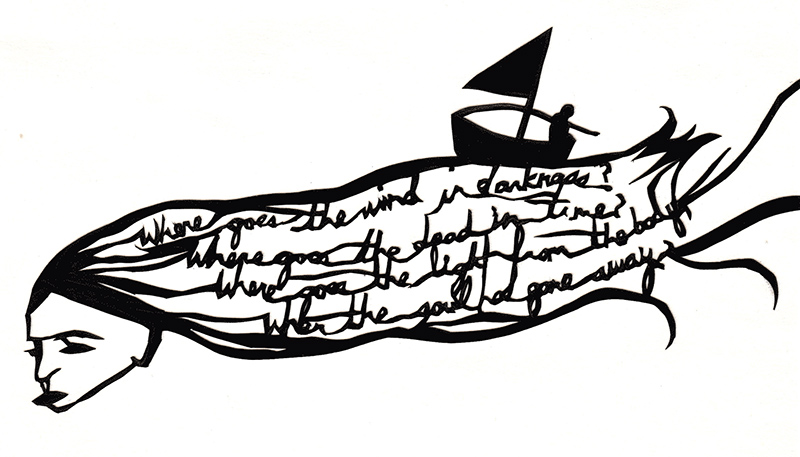
JCCFS: On the topic of inspiration, I love this quote from you: “This is a seemingly endless quest for home, both in terms of place and family as well as the search for home within ourselves.”
Can you elaborate more on how this idea of “home” informs your work and how your upcoming class might be a good opportunity for students to explore their own personal ideas about home?
W of R: Absolutely; home is this place we are reaching for, and it’s a place we already have within us. There’s a dynamic tension there that provides fuel for art.
Working collaboratively is such a gift; it’s an opportunity to surrender into the awareness that the other person has seen and will see things you never will. To accept that, and find the common sparks that ignite both of you, is to build a story stronger than either of you would be able to create alone. This is the magic and the beauty of collaboration.
Community, home, and connection are things that we have to create as well as remember. Working together, singing together, storytelling and playing together; these things build relationship and community. These things create home.
JCCFS: Where did the name “West of Roan” come from?
W of R: We lived in North Carolina when we gave ourselves this name, but we are both originally from the Pacific Northwest. Being in a new landscape was exciting and also brought up all kinds of feelings about home and place. “West” comes partly from thinking about our childhoods, as well as where the sun sets. Roan comes from The Roan Highlands on the NC/TN state line, and also other things: the Gaelic word for Seal is Ron (there are a lot of seals where we are from); Roan refers to a kind of coat pattern in a horse, and horses make their way into our stories quite often.
JCCFS: In addition to shadow puppetry, song and music is an equally important aspect of your performances. What musical instruments do you play? What are your favorite instruments or styles of music?
W of R: Singing is our first music–improvising and discovering harmonies as well as story songs and old songs. In puppetry, we need all of our hands free so we often just sing. We also play fiddle, cello, and guitar. Any instrument with a good drone (accordion, harmonium, shruti box, strings) usually draws our attention for its power to set the scene and bring emotion. We are inspired by songs and tunes from the British Isles, Bulgaria, Republic of Georgia.
JCCFS: Are the songs you sing traditional? Do you ever write your own songs?
W of R: We sing kind of a mix but usually perform our own songs. It’s important to us to sing traditional songs that have influenced us a lot, and also songwriting is a big part of discovering the stories we are trying to tell.
JCCFS: Will students in your class need to be musically inclined to participate in your class?
W of R: No, they need not be musically inclined. There is a lot of intimidation in our culture around singing, and we feel really passionate about dispelling some of that. Singing is innate to anyone who has a voice. It’s much more about listening and opening to yourself than hitting the right note or having a “good” voice. We advocate for playing around and listening for intuition, rather than seeing music through a lens of right and wrong.

JCCFS: Many of your performance pieces embrace historical techniques, music, and materials. Do you have a favorite era or time and place that you like to draw upon? What draws you to historical methods and styles?
W of R: Yes; connecting to the past has featured strongly in our subject matter and our methods of working. There’s a resonance for us in the music that comes from places our near ancestors lived; Scotland, Ireland, Scandinavia. As descendants of these various European immigrants who left behind many of their languages, songs and stories in order to become Americans, we mourn a loss of cultural continuity and connectedness to place, ancestry, and mythology. That feeling of disconnection and rootlessness seems to be common for a lot of people in modern North America. Our reaching backward has a lot to do with that yearning and curiosity.
I think we also just feel worn out by the pace of 21st century life sometimes, and want to make and perform in ways that are tactile and slow, inviting more of our bodies and emotions into the process.
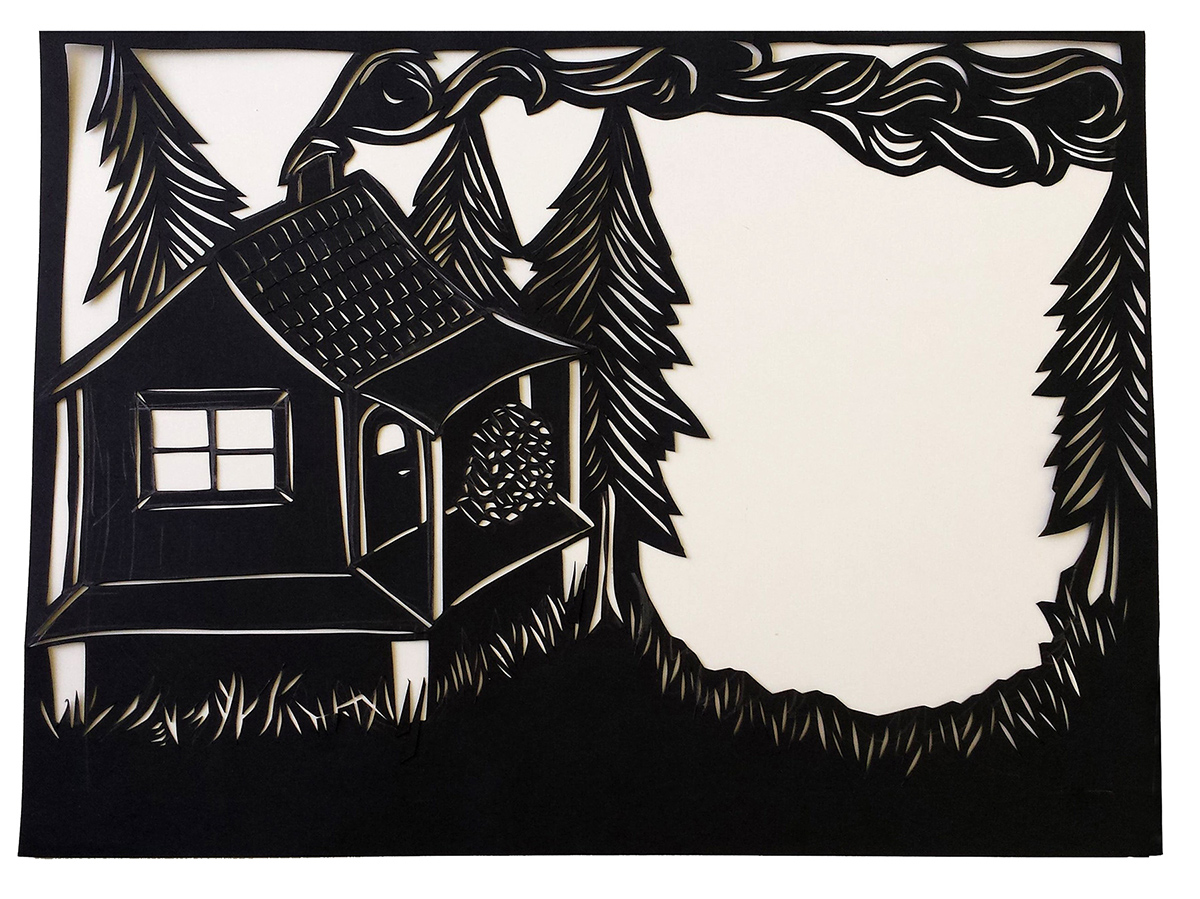
Annie & Channing by Salt River
Upcoming Class
Puppetry and Song
October 9–14, 2023
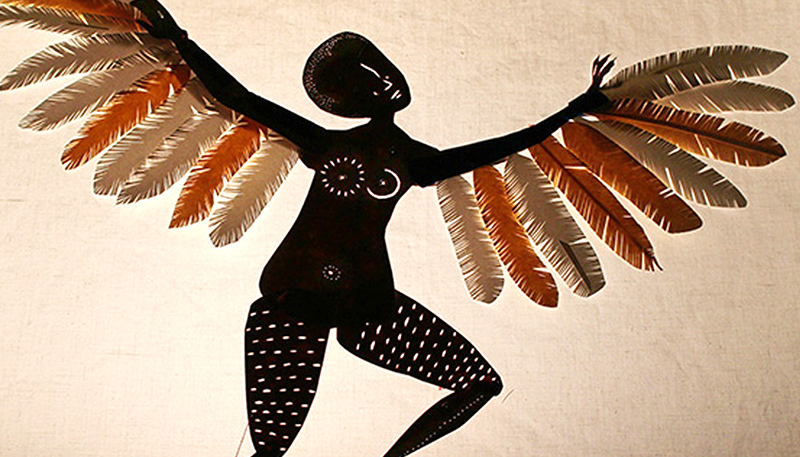



No Comments